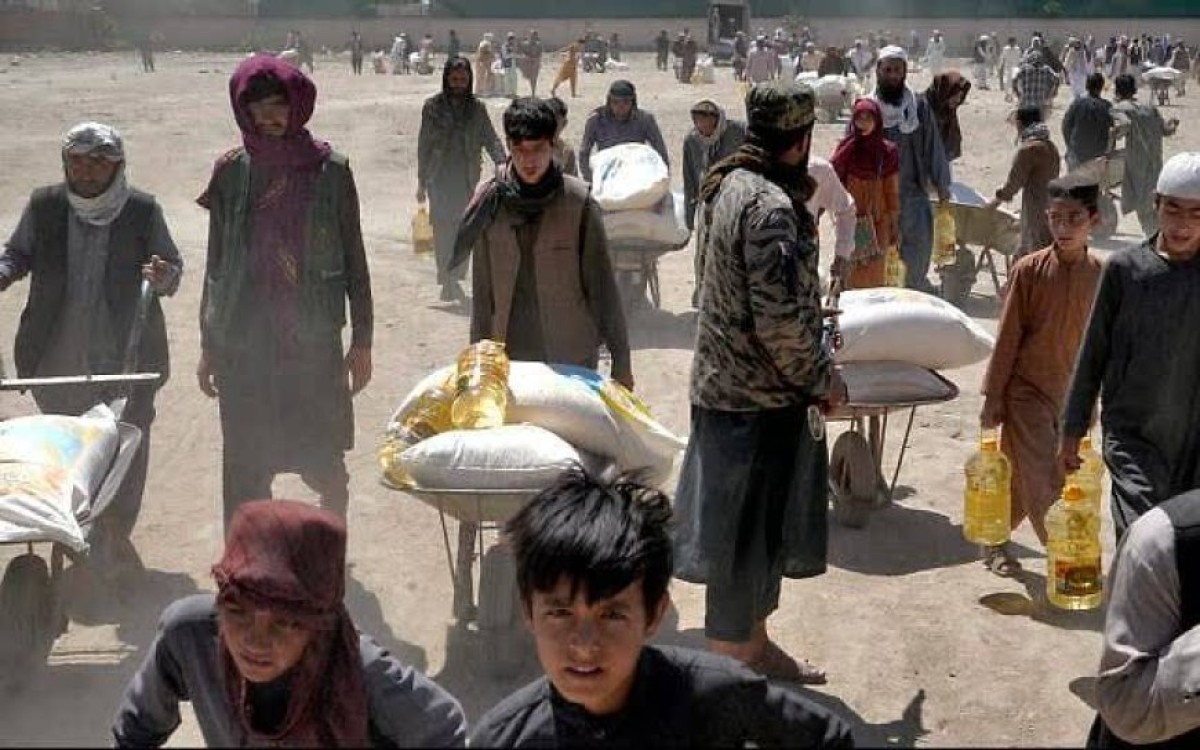 145
145
By: M. Sharifi
In a recent development, Human Rights Watch released an alarming report highlighting the dire situation in Afghanistan since the Taliban's takeover. According to the report, a staggering 90% of the country's populace has been grappling with food insecurity, while millions of children have been afflicted with malnutrition.
The pressing issue of food insecurity in Afghanistan has elicited a call for urgent action from the United Nations Deputy Secretary General, who has urged the provision of a substantial relief package worth 4.6 billion dollars to deliver essential aid to over 23 million Afghans. Merely 5% of the relief sought has been supplied thus far, which is shocking given the terrible conditions in war-torn Afghanistan. In fact, Afghanistan's severe food shortages have reached a critical point. However, the question of who is to blame for the current tragic circumstances still persists.
It can be argued that both the Taliban and the Western governments that started a catastrophic war in Afghanistan bear responsibility for the precarious conditions that put the lives of countless Afghan citizens in jeopardy.
The ongoing situation in Afghanistan is undeniably linked to the two decades of occupation by the United States and its Western allies, who are widely recognised as champions of human rights. In 2001, a coalition of western governments embarked on a military campaign in Afghanistan under the false pretext of combating terrorism. However, despite the significant loss of lives and financial resources, these countries were ultimately forced to withdraw from Afghanistan.
On the other hand, the economic turmoil in Afghanistan can be attributed to the decision to freeze approximately 7 billion dollars from the Afghan Central Bank's assets. In this regard, seventy prominent economists have recently sent a joint letter to Biden, highlighting that the freeze of Afghan assets is at the root of the crisis in Afghanistan, including the food shortage. The economists' letter underscored the urgent need to address this matter and its potential impact on Afghanistan's future.
In light of the multifaceted nature of the current crisis, the role of the Taliban must also be examined since the Taliban is now responsible for the fate of millions of Afghans. It has been nearly two years since the Taliban regained control over Afghanistan, and yet they have failed to address the pressing issues of poverty, unemployment, and food insecurity. Many observers believe that the absence of a well-defined strategy on the part of the Taliban to address these pressing issues is a source of concern.
Finally, Western countries, particularly the United States, ought to be aware that the escalation of the food insecurity crisis in Afghanistan will result in unfathomable catastrophes. As a result, they should refrain from politicising human rights issues and act responsibly in response to the food insecurity crisis in Afghanistan. The Taliban must also demonstrate a sense of responsibility and recognise that they are no longer a group of guerrillas. Rather, as the rulers of Afghanistan, they are responsible for providing services to the Afghans and addressing their financial woes.
Comment
Post a comment for this article